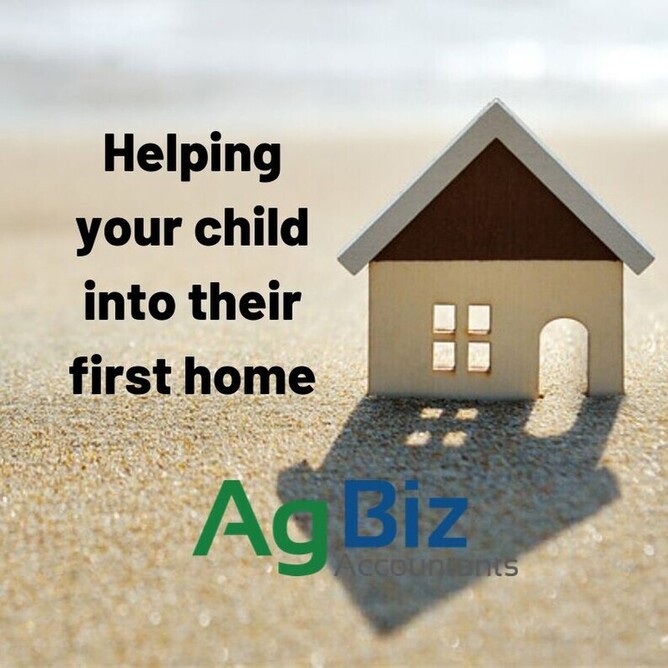We have recently had several conversations about helping children into their first homes. Some parents have an inter-generational view of wealth and like to pay it forward by providing an early inheritance.
There is no one size fits all approach for this process, or any family succession strategy. Individual specific advice is recommended.
This article explores options available to help your children into their first home and outlines some risks to considers.
If the child has a partner and they intend to live in the house together, there are significant potential consequences of relationship property that need to be considered. As parents, we recommend that you protect the intent of your gift and we have outlined practical recommendations in the article.
Gift your children the deposit
For most owner-occupied properties, the bank will require a 20% deposit. This needs to be a gift (non-repayable to the parents). The gift then becomes the child’s personal property. A 20% deposit normally allows the banks best borrowing rates and conditions.
If a child purchases an owner-occupied property with their partner, using the 20% gifted deposit from parents, the gift (by default) becomes ‘relationship property’. This is because it is being used to acquire relationship assets (the family home).
If the child and their partner separate in the future, then each partner is entitled to half of the relationship property, including the gifted amount. This dilutes the overall family wealth as seen in example 1 below. Once the gift is made to the child it is outside of the parent’s control.
Example 1
Adam and Sarah purchase a $500k family home. They borrow $400k from the bank, and Sarah’s parents gift Sarah $100k for the deposit. Six years later, Adam and Sarah decide to separate [for simplicity assume house prices remain flat]. They sell the house for $500k and have jointly repaid $60k of debt over six years (mortgage now $340k). Net sale proceeds are $160k after repaying the mortgage.
Both Adam and Sarah are entitled to half of the sale proceeds (or $80k each). For Sarah, this is less than what Sarah’s parents gifted her to originally purchase the house. For Adam, his share of the mortgage reduction is $30k, however, he is still receiving 50% of Sarah’s original gifted deposit ($50k). Adam is receiving 50% of Sarah’s parents original gift as it is relationship property.
While some individuals say, ‘this will never happen to me’, or ‘we don’t need an agreement, we trust each other’, unfortunately, over time, these situations do occur, and can get messy and expensive.
Recommendation
If parents make a gift to their children, we recommend a section 21 contracting out agreement be part of the terms and conditions of that gift. This results in the gift (the house deposit) being the child’s separate property.
Example 2
Using the same example above, Sarah receives the gift of $100k to purchase the house, subject to a section 21 relationship property agreement with her partner. They separate six years later and sell the house for the same price.
Sarah receives her original $100k as it is her separate property. The balance of the sale proceeds (being $60k) are split evenly between them. The family wealth is being retained.
Acting as guarantor
Another option is for the parents to become a guarantor. This means using the equity in your own house as security for your child’s loan. If your child defaults on their loan or could no longer meet their loan repayments, the guarantor may be legally responsible to repay the children’s entire loan.
Often banks will also test the guarantor has the means to meet the loan repayments in different situations. Being a guarantor has a high level of risk involved and legal advice is recommended.
Buying a house for the child to rent
Another option to consider is the parents buying a property and renting it to the child. They could also have flatmates to help pay the rent. Later, your child could buy the property from you (this could be negotiated; original purchase price, market value, or an alternative value).
Having a rental property (even if rented by a child) is likely to be a taxable activity. Rental profits (rental income less expenses) may be subject to income tax. There is potential to arrange for part of the rent payments received to go towards the child’s future deposit to purchase the property. Therefore, the full rent received is not taxable income. Careful record keeping is needed and we recommend talking to us about this option first.
A future sale of the property within 5 years would trigger a bright line taxable event. This results in any difference between the purchase price and sale price being taxable income to the owner.
Discussion points for consideration
In some situations, it is the parents pushing the idea of the child buying the house, rather than the child wanting to buy the house. We recommend considering:
- Has your child expressed interest in buying a house, or is this your personal goal?
- Is your child going to live in the same city, or NZ for the next 3-5 years? Is buying a house a good investment for them?
- Will they be happy with the specific house you buy, or if they were to purchase their own property would it be different? (i.e. apartment, townhouse, lifestyle etc)
- Have they considered other investment options? (i.e., share investment portfolio, other investments etc).
- Can they withdraw their kiwisaver, or eligible for the first home buyers grant?
Contact Tim Doyle or Jane Evans today for a no obligation phone call or meeting on 07 823 4980 or contactus. Our office is in Cambridge, NZ, but distance is no problem. We have many international and national clients.
This material has been prepared for informational purposes only, and is not intended to provide, and should not be relied on for, tax, legal or accounting advice. You should consult your own tax, legal and accounting advisors before engaging in any transaction.



